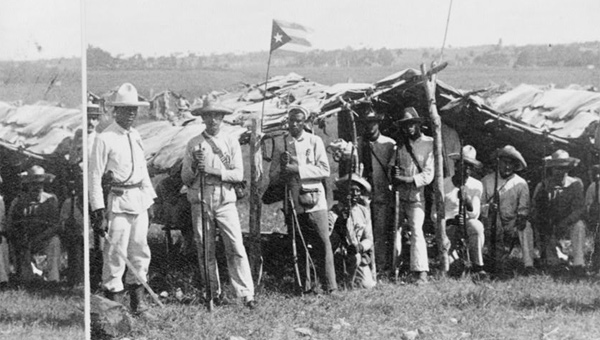Throughout this lesson, you will be required to take notes.
Read the simplified definitions in the boxes below of imperialism and expansionism. Now imagine your own town, state, or country being sold or forcefully taken by another country. How would you feel about that? You might have to speak a different language, practice a different religion, or have some of your rights taken away from you. Would you fight to get your homeland back or support others who would? Write your responses in complete sentences in your notes.
Acquiring foreign territories either by force or peaceful means
The policy of a country gaining more land outside of its current borders
There may be several reasons why a country might want to acquire foreign lands. However, most often the dominant country sees an economic opportunity. The foreign territory may provide vast amounts of natural resources, serve as a new trading market, or offer cheap labor.
![]() This map of the Spanish Empire shows the worldwide locations of the empire throughout various historical periods. Click on the map key and the various sections of the map to enlarge it.
This map of the Spanish Empire shows the worldwide locations of the empire throughout various historical periods. Click on the map key and the various sections of the map to enlarge it.
Source of Map image: Spanish Empire Anachronous, Wikimedia
This is a world political map that shows the Spanish Empire at various historical periods.Based on the map above, the height of Spanish imperialism was long gone by the time of the Spanish-American War in 1898. Around the world, ordinary citizens, without any formal training, have fought to ensure their own sovereignty against imperialist powers. In Cuba, rebels fought to expel the Spanish power.

Source: Cuban soldiers, Guanabacoa, Cuba, Kilburn Company, Library of Congress